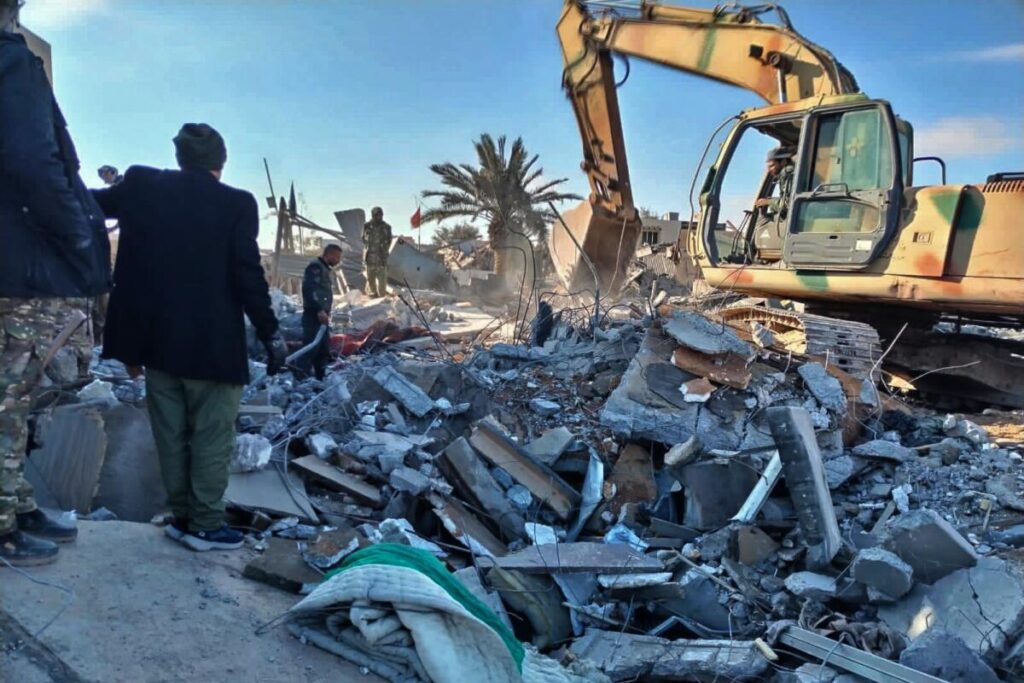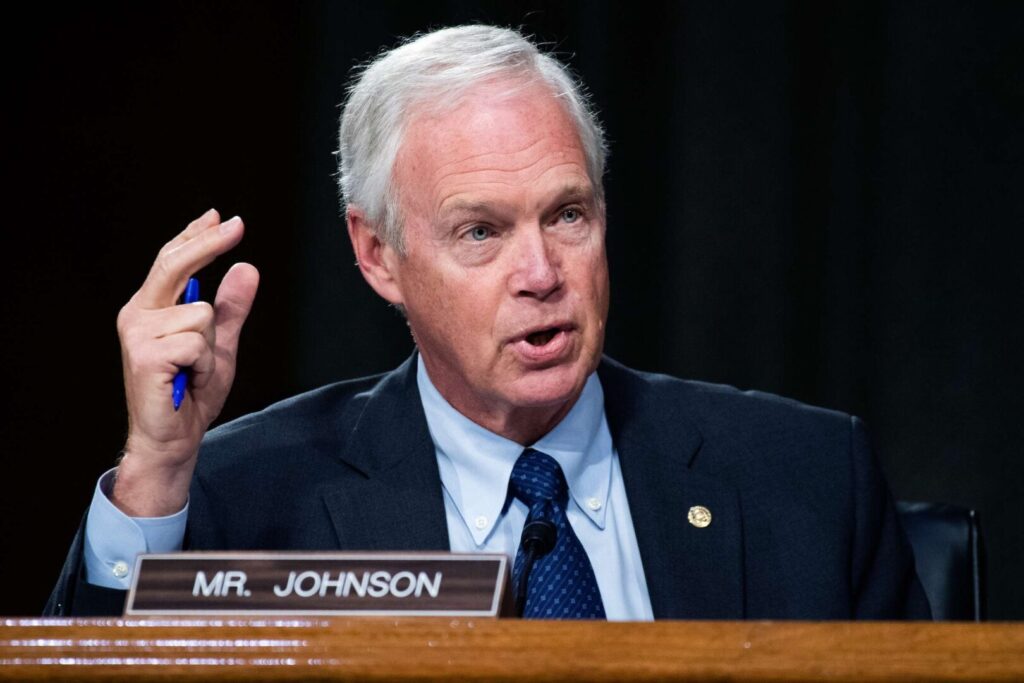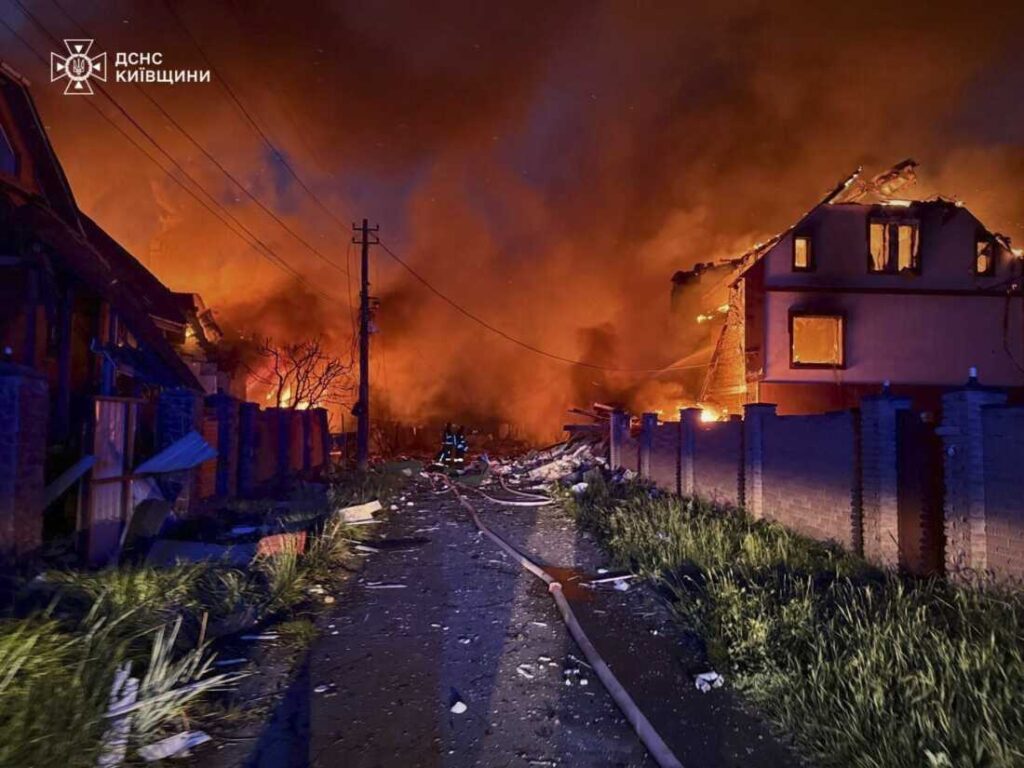The United States launched airstrikes on three Iranian nuclear sites early Sunday, marking a dramatic escalation in Middle East tensions and signaling U.S. entry into Israel’s ongoing war with Iran.
President Donald Trump announced the strikes in a televised address from the White House, calling the operation a success and warning Tehran against retaliatory actions.
“Iran’s key nuclear facilities were completely and fully obliterated,” Trump said. “There will either be peace or there will be tragedy for Iran.”
The Pentagon has not yet released an independent damage assessment. The International Atomic Energy Agency later confirmed that it had detected “no increase in off-site radiation levels” at the targeted facilities, including Fordo, Isfahan and Natanz.
The decision to strike comes amid a nine-day conflict between Israel and Iran, during which Israel has launched multiple offensives aimed at dismantling Iran’s missile and air defense infrastructure. U.S. military officials said the use of American stealth bombers and 30,000-pound bunker-buster bombs was considered necessary to penetrate the fortified underground nuclear sites.
“We have completed our very successful attack on the three nuclear sites in Iran,” Trump posted on social media. “All planes are now outside of Iran air space. A full payload of BOMBS was dropped on the primary site, Fordow. All planes are safely on their way home.”
In a subsequent post, Trump added: “This is an HISTORIC MOMENT FOR THE UNITED STATES OF AMERICA, ISRAEL, AND THE WORLD. IRAN MUST NOW AGREE TO END THIS WAR. THANK YOU!”
Iranian officials denounced the strikes. Foreign Minister Abbas Araghchi posted on X that the attacks “will have everlasting consequences,” adding that Tehran “reserves all options” for retaliation.
Iran’s ambassador to the United Nations, Amir Saeid Iravani, called for an emergency Security Council meeting, describing the airstrikes as a “heinous and illegal use of force.” In a letter obtained by The Associated Press, Iravani urged the U.N. to “take all necessary measures” to hold the U.S. accountable under international law.
The Atomic Energy Organization of Iran confirmed the attacks but insisted that its nuclear program would continue. Officials said no radioactive contamination was detected and that nearby residents were not in danger.
While Iran maintains its nuclear activities are for peaceful purposes, the Trump administration and Israeli leaders have long claimed Tehran poses an imminent nuclear threat. U.S. intelligence agencies, however, have assessed that Iran is not actively pursuing a nuclear weapon.
Israeli Prime Minister Benjamin Netanyahu praised Trump in a video message, calling the strikes a “bold decision.”
“Your decision to target Iran’s nuclear facilities, with the awesome and righteous might of the United States, will change history,” Netanyahu said. “The U.S. has done what no other country on Earth could do.”
Israel also announced the closure of its airspace to inbound and outbound flights as a precaution. Sirens were heard in Jerusalem early Sunday after Iran launched additional missiles, though the scale of those attacks has diminished in recent days.
As regional tensions rise, global leaders have called for de-escalation to prevent a broader conflict. Congress was not consulted prior to the strike, and legal experts have raised questions about the president’s authority to initiate military action without legislative approval.
The long-term consequences of Sunday’s airstrikes remain unclear, but the decision places the United States at the center of a dangerous and complex confrontation in the Middle East.



